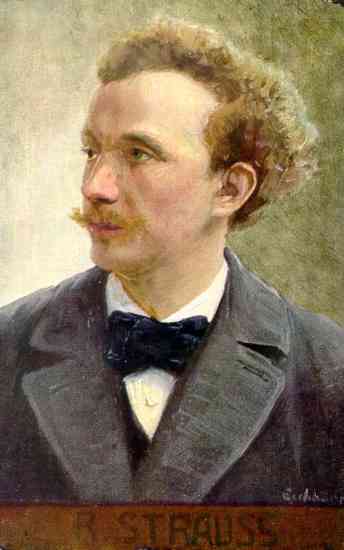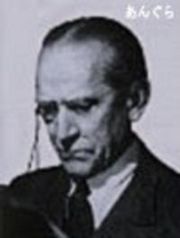
20th Century, Songs, Works
The Four Last Songs were among Richard Strauss’ last works. He composed them in 1948, shortly before his death. They are all set to poems, three of them by Hermann Hesse — Frühling (Spring), September, and Beim Schlafengehen (While Falling Asleep) — and one of them by Joseph von Eichendorff — Im Abendrot (At Twilight). These were not initially conceived of as a set of songs, but published in that form after his death and premiered in 1950.
The words and music are calm and contemplative; the last three songs evoke an acceptance of death. The music features melodic interplays between the soprano and the orchestra, subtle chromatic shifts, and lyrical horn passages.
(M. F. Tietz)

20th Century, Songs, Works
Canteloube (1879-1957) was born in the Ardèche region in southern France. Early on he showed a proclivity for musical composition and eventually studied in Paris.
While he composed two operas and a number of other works, he is best known today for his settings of French folk songs, particularly those from the Auvergne region in south-central France, a rural and mountainous region. He arranged six “series” or books of these songs; the ones we’re performing today have been selected from books 1-4, composed in the 1920s. They can be sung either in the “Auvergnat” dialect (based on the medieval Occitan language — the “langue d’oc”), or in French. We’ve chosen to perform them in Auvergnat because its piquant flair fits so well with the music.
The songs themselves feature mostly country themes — a shepherd pleading with a shepherdess to come to him over the river, pledging to her his devoted love (Pastourelle); a girl’s scornful rejection of a hunchback’s offer of love (Lou Boussu); a haunting duet sung by a shepherdess and shepherd, echoing across the mountains — the shepherd finally promising to cross the river to her (Bailèro); a warning that drinking spring water is fatal — a maiden should drink wine instead, especially if she wants to get married (L’Aïo de Rotso); let’s find a meadow to graze our flocks and make love (Ound’ Onorèn Gorda?); and a hymn of praise to the beautiful girls, and to the gallant and faithful men, of the Auvergne (Obal din lou Limouzi).


